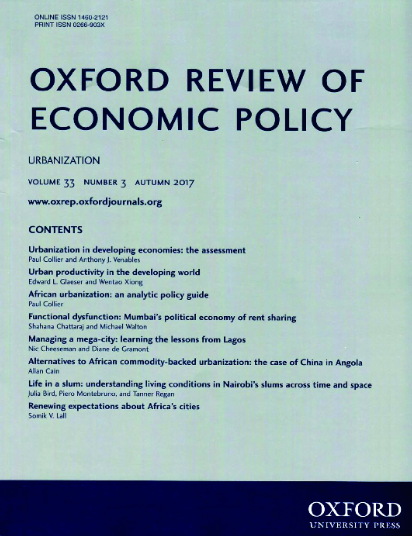Net zero electricity: the UK 2035 target
IF 1.8
2区 经济学
Q2 ECONOMICS
引用次数: 1
Abstract
The UK is, like its peers in the EU, just under 80% dependent on fossil fuels. This figure has come down just over 10% since the 1970s, a period when the UK had major energy-intensive industries, most of which are now gone. The government is committed to achieving net zero for the electricity sector by 2035 on the pathway to net zero for the whole economy by 2050.. The Labour opposition has set 2030 as its electricity target. Setting out the scale of this challenge, this paper demonstrates how implausible the 2035 target is. On present policies there is little prospect that the 2035 target will be met (and virtually none for the Labour 2030 target). This paper reviews the multiple current policies and the capacity objectives and explores what would have to happen to meet the target. It sets out some of the consequences of failure to deliver, and the expectation of that failure.净零电力:英国2035年目标
与欧盟其他国家一样,英国对化石燃料的依赖不到80%。自20世纪70年代以来,这一数字下降了10%多一点,当时英国拥有主要的能源密集型产业,其中大部分现在已经消失了。政府承诺到2035年实现电力部门的净零排放,到2050年实现整个经济的净零排放。反对党工党将2030年定为电力目标。本文阐述了这一挑战的规模,证明了2035年的目标是多么不可能。按照目前的政策,2035年目标实现的可能性很小(工党2030年目标几乎没有实现的可能)。本文回顾了当前的多项政策和能力目标,并探讨了实现这些目标必须采取的措施。它列出了未能交付的一些后果,以及对这种失败的预期。
本文章由计算机程序翻译,如有差异,请以英文原文为准。
求助全文
约1分钟内获得全文
求助全文
来源期刊

Oxford Review of Economic Policy
ECONOMICS-
CiteScore
12.50
自引率
1.50%
发文量
41
期刊介绍:
The Oxford Review of Economic Policy is a refereed journal which is published quarterly. Each issue concentrates on a current theme in economic policy, with a balance between macro- and microeconomics, and comprises an assessment and a number of articles. It gives a valuable appraisal of economic policies worldwide. While the analysis is challenging and at the forefront of current thinking, articles are presented in non-technical language to make them readily accessible to all readers. The Oxford Review is aimed at a wide audience including government, business and policy-makers, as well as academics and students. It is required reading for those who need to know where research is leading.
 求助内容:
求助内容: 应助结果提醒方式:
应助结果提醒方式:


